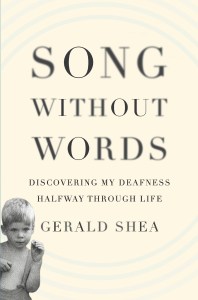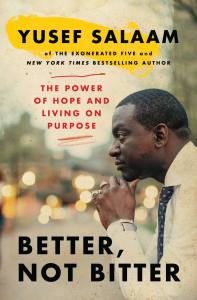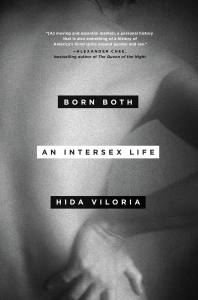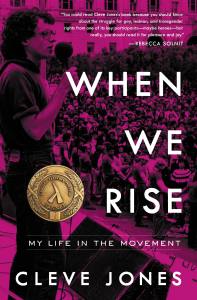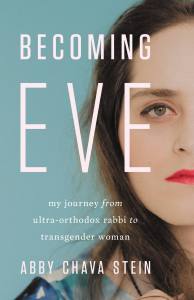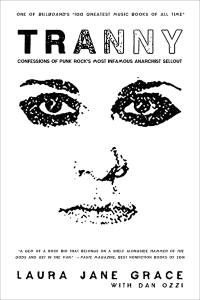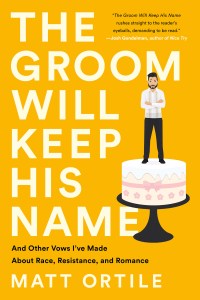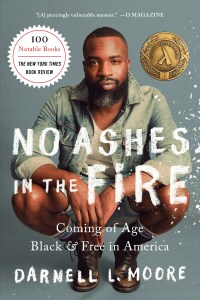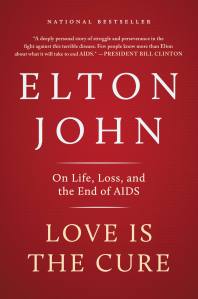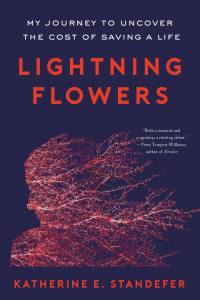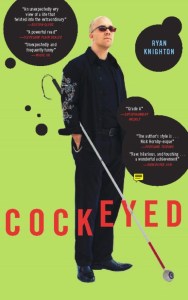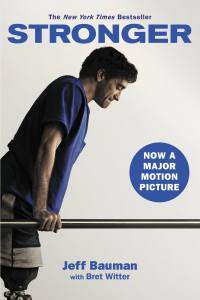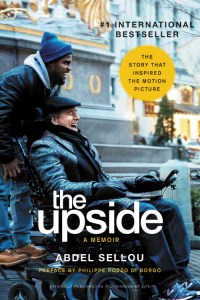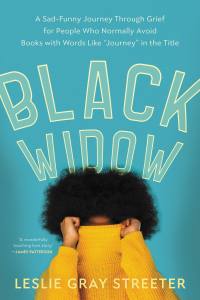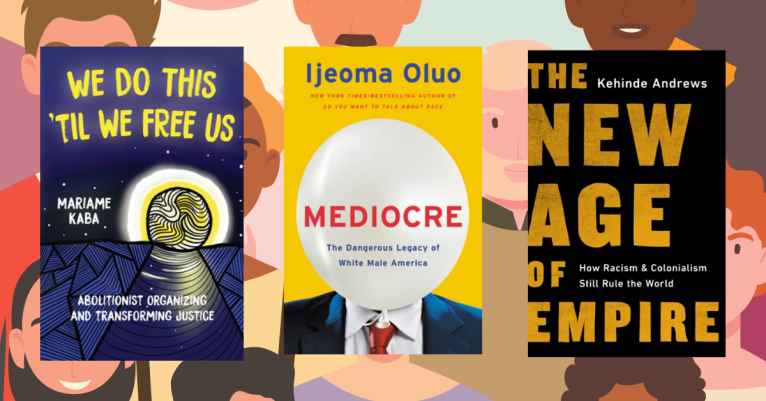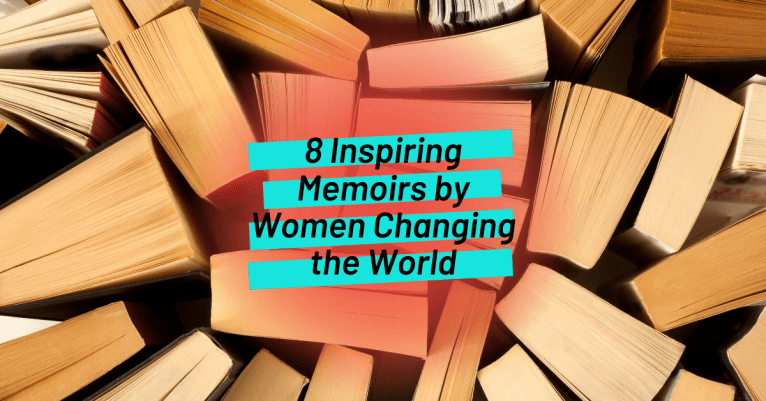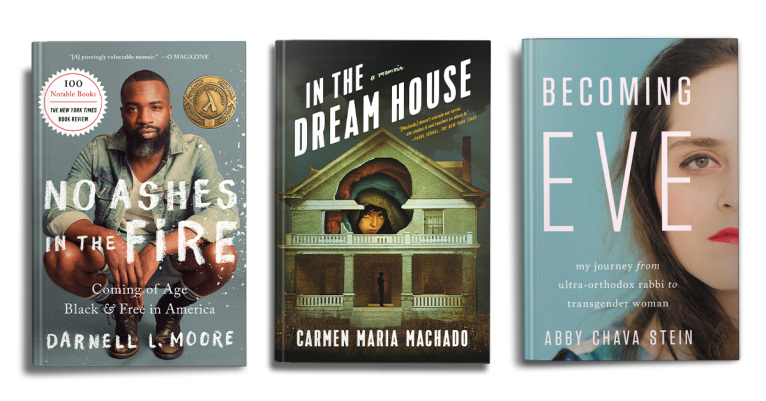The Best Memoirs to Read in 2022 and Beyond
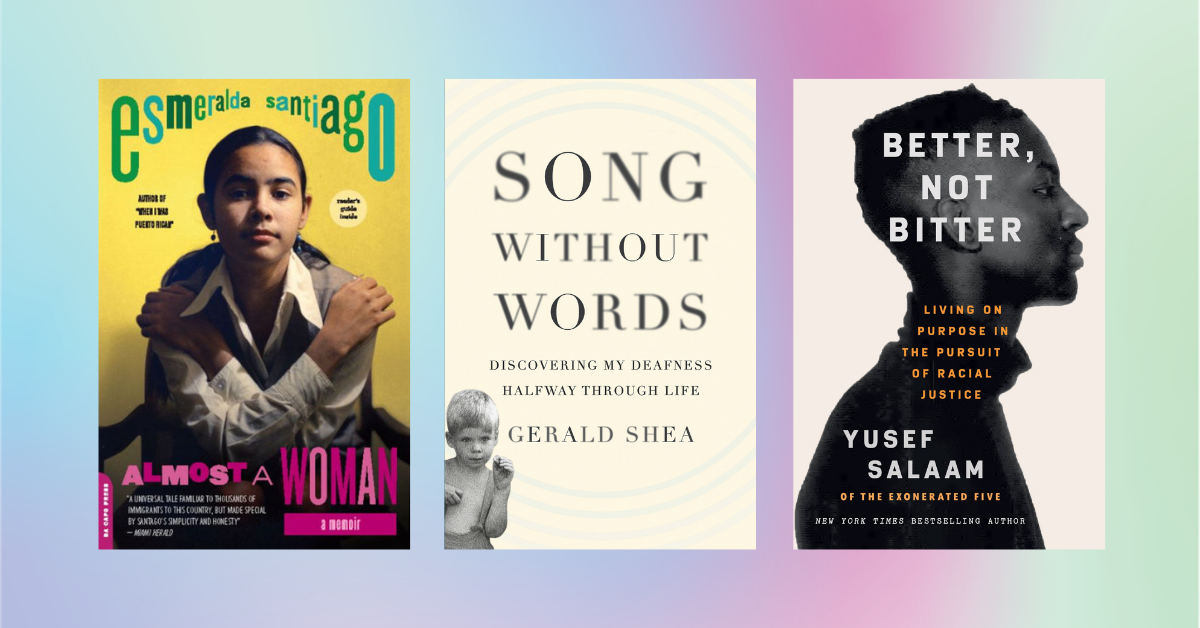
These personal memoirs cover the lives of brilliant activists, rockstars, scholars, and more. If you’re looking for memoir recommendations to read this year and beyond, here are 16 moving and powerful stories.
Gerald Shea's witty and candid memoir of how he compensated for his deafness -- through sheer determination and an amazing ability to translate the melody of vowels. His experience gives fascinating new insight into the nature and significance of language, the meaning of deafness, the fierce controversy between advocates of signing and of oral education, and the longing for full communication that unites us all.
This inspirational memoir serves as a call to action from prison reform activist Yusef Salaam, of the Exonerated Five, that will inspire us all to turn our stories into tools for change in the pursuit of racial justice.
They didn't know who they had.
So begins Yusef Salaam telling his story. No one's life is the sum of the worst things that happened to them, and during Yusef Salaam's seven years of wrongful incarceration as one of the Central Park Five, he grew from child to man, and gained a spiritual perspective on life. Yusef learned that we're all "born on purpose, with a purpose." Despite having confronted the racist heart of America while being "run over by the spiked wheels of injustice," Yusef channeled his energy and pain into something positive, not just for himself but for other marginalized people and communities.
Better Not Bitter is the first time that one of the now Exonerated Five is telling his individual story, in his own words. Yusef writes his narrative: growing up Black in central Harlem in the '80s, being raised by a strong, fierce mother and grandmother, his years of incarceration, his reentry, and exoneration. Yusef connects these stories to lessons and principles he learned that gave him the power to survive through the worst of life's experiences. He inspires readers to accept their own path, to understand their own sense of purpose. With his intimate personal insights, Yusef unpacks the systems built and designed for profit and the oppression of Black and Brown people. He inspires readers to channel their fury into action, and through the spiritual, to turn that anger and trauma into a constructive force that lives alongside accountability and mobilizes change.
This memoir is an inspiring story that grew out of one of the gravest miscarriages of justice, one that not only speaks to a moment in time or the rage-filled present, but reflects a 400-year history of a nation's inability to be held accountable for its sins. Yusef Salaam's message is vital for our times, a motivating resource for enacting change. Better, Not Bitter has the power to soothe, inspire and transform. It is a galvanizing call to action.
My name is Hida Viloria. I was raised as a girl but discovered at a young age that my body looked different. Having endured an often turbulent home life as a kid, there were many times when I felt scared and alone, especially given my attraction to girls. But unlike most people in the first world who are born intersex--meaning they have genitals, reproductive organs, hormones, and/or chromosomal patterns that do not fit standard definitions of male or female--I grew up in the body I was born with because my parents did not have my sex characteristics surgically altered at birth.
It wasn't until I was twenty-six and encountered the term intersex in a San Francisco newspaper that I finally had a name for my difference. That's when I began to explore what it means to live in the space between genders--to be both and neither. I tried living as a feminine woman, an androgynous person, and even for a brief period of time as a man. Good friends would not recognize me, and gay men would hit on me. My gender fluidity was exciting, and in many ways freeing--but it could also be isolating.
I had to know if there were other intersex people like me, but when I finally found an intersex community to connect with I was shocked, and then deeply upset, to learn that most of the people I met had been scarred, both physically and psychologically, by infant surgeries and hormone treatments meant to "correct" their bodies. Realizing that the invisibility of intersex people in society facilitated these practices, I made it my mission to bring an end to it--and became one of the first people to voluntarily come out as intersex at a national and then international level.
Born Both is the story of my lifelong journey toward finding love and embracing my authentic identity in a world that insists on categorizing people into either/or, and of my decades-long fight for human rights and equality for intersex people everywhere.
This sweeping memoir tells the life story of longtime LGBTQ and AIDS activist Cleve Jones in a profoundly moving account from sexually liberated 1970s San Francisco, through the AIDS crisis, and up to his involvement with the marriage equality battle.
Born in 1954, Cleve Jones was among the last generation of gay Americans who grew up wondering if there were others out there like himself. There were. Like thousands of other young people, Jones, nearly penniless, was drawn in the early 1970s to San Francisco, a city electrified by progressive politics and sexual freedom.
Jones found community--in the hotel rooms and ramshackle apartments shared by other young adventurers, in the city's bathhouses and gay bars like The Stud, and in the burgeoning gay district, the Castro, where a New York transplant named Harvey Milk set up a camera shop, began shouting through his bullhorn, and soon became the nation's most outspoken gay elected official. With Milk's encouragement, Jones dove into politics and found his calling in "the movement." When Milk was killed by an assassin's bullet in 1978, Jones took up his mentor's progressive mantle--only to see the arrival of AIDS transform his life once again.
By turns tender and uproarious, When We Rise is Jones' account of his remarkable life. He chronicles the heartbreak of losing countless friends to AIDS, which very nearly killed him, too; his co-founding of the San Francisco AIDS Foundation during the terrifying early years of the epidemic; his conception of the AIDS Memorial Quilt, the largest community art project in history; the bewitching story of 1970s San Francisco and the magnetic spell it cast for thousands of young gay people and other misfits; and the harrowing, sexy, and sometimes hilarious stories of Cleve's passionate relationships with friends and lovers during an era defined by both unprecedented freedom and and violence alike.
When We Rise is not only the story of a hero to the LQBTQ community, but the vibrantly voice memoir of a full and transformative American life.
Lambda Literary Award Winner
The partial inspiration for the ABC television mini-series!
"You could read Cleve Jones's book because you should know about the struggle for gay, lesbian, and transgender rights from one of its key participants--maybe heroes--but really, you should read it for pleasure and joy."--Rebecca Solnit, author of Men Explain Things to Me
Abby Stein was raised in a Hasidic Jewish community in Brooklyn, isolated in a culture that lives according to the laws and practices of eighteenth-century Eastern Europe, speaking only Yiddish and Hebrew and shunning modern life. Stein was born as the first son in a dynastic rabbinical family, poised to become a leader of the next generation of Hasidic Jews.
But Abby felt certain at a young age that she was a girl. She suppressed her desire for a new body while looking for answers wherever she could find them, from forbidden religious texts to smuggled secular examinations of faith. Finally, she orchestrated a personal exodus from ultra-Orthodox manhood to mainstream femininity-a radical choice that forced her to leave her home, her family, her way of life.
Powerful in the truths it reveals about biology, culture, faith, and identity, Becoming Eve poses the enduring question: How far will you go to become the person you were meant to be?
It began in a bedroom in Naples, Florida, when a misbehaving punk teenager named Tom Gabel, armed with nothing but an acoustic guitar and a headful of anarchist politics, landed on a riff. Gabel formed Against Me! and rocketed the band from its scrappy beginnings-banging on a drum kit made of pickle buckets-to a major-label powerhouse that critics have called this generation's The Clash. Since its inception in 1997, Against Me! has been one of punk's most influential modern bands, but also one of its most divisive. With every notch the four-piece climbed in their career, they gained new fans while infuriating their old ones. They suffered legal woes, a revolving door of drummers, and a horde of angry, militant punks who called them "sellouts" and tried to sabotage their shows at every turn.
But underneath the public turmoil, something much greater occupied Gabel-a secret kept for 30 years, only acknowledged in the scrawled-out pages of personal journals and hidden in lyrics. Through a troubled childhood, delinquency, and struggles with drugs, Gabel was on a punishing search for identity. Not until May of 2012 did a Rolling Stone profile finally reveal it: Gabel is a transsexual, and would from then on be living as a woman under the name Laura Jane Grace.
Tranny is the intimate story of Against Me!'s enigmatic founder, weaving the narrative of the band's history, as well as Grace's, with dozens of never-before-seen entries from the piles of journals Grace kept. More than a typical music memoir about sex, drugs, and rock 'n' roll-although it certainly has plenty of that-Tranny is an inside look at one of the most remarkable stories in the history of rock.
When Matt Ortile moved from Manila to Las Vegas, the locals couldn't pronounce his name. Harassed as a kid for his brown skin, accent, and femininity, he believed he could belong in America by marrying a white man and shedding his Filipino identity. This was the first myth he told himself. The Groom Will Keep His Name explores the various tales Ortile spun about what it means to be a Vassar Girl, an American Boy, and a Filipino immigrant in New York looking to build a home.
When Darnell Moore was fourteen, three boys from his neighborhood tried to set him on fire. They cornered him while he was walking home from school, harassed him because they thought he was gay, and poured a jug of gasoline on him. He escaped, but just barely. It wasn't the last time he would face death.
Three decades later, Moore is an award-winning writer, a leading Black Lives Matter activist, and an advocate for justice and liberation. In No Ashes in the Fire, he shares the journey taken by that scared, bullied teenager who not only survived, but found his calling. Moore's transcendence over the myriad forces of repression that faced him is a testament to the grace and care of the people who loved him, and to his hometown, Camden, NJ, scarred and ignored but brimming with life. Moore reminds us that liberation is possible if we commit ourselves to fighting for it, and if we dream and create futures where those who survive on society's edges can thrive.
No Ashes in the Fire is a story of beauty and hope-and an honest reckoning with family, with place, and with what it means to be free.
In the 1980s, Elton John saw friend after friend, loved one after loved one, perish needlessly from AIDS. He befriended Ryan White, a young Indiana boy ostracized because of his HIV infection. Ryan's inspiring life and devastating death led Elton to two realizations: His own life was a mess. And he had to do something to help stop the AIDS crisis.
Since then, Elton has dedicated himself to overcoming the plague and the stigma of AIDS. The Elton John AIDS Foundation has raised and donated $275 million to date to fighting the disease worldwide. Love Is the Cure includes stories of Elton's close friendships with Ryan White, Freddie Mercury, Princess Diana, Elizabeth Taylor, and others, and the story of the Elton John AIDS Foundation.
Sales of Love Is the Cure benefit the Elton John AIDS Foundation.
This "utterly spectacular" book weighs the impact modern medical technology has had on the author's life against the social and environmental costs inevitably incurred by the mining that makes such innovation possible (Rachel Louise Snyder, author of No Visible Bruises).
What if a lifesaving medical device causes loss of life along its supply chain? That's the question Katherine E. Standefer finds herself asking one night after being suddenly shocked by her implanted cardiac defibrillator.In this gripping, intimate memoir about health, illness, and the invisible reverberating effects of our medical system, Standefer recounts the astonishing true story of the rare diagnosis that upended her rugged life in the mountains of Wyoming and sent her tumbling into a fraught maze of cardiology units, dramatic surgeries, and slow, painful recoveries. As her life increasingly comes to revolve around the internal defibrillator freshly wired into her heart, she becomes consumed with questions about the supply chain that allows such an ostensibly miraculous device to exist. So she sets out to trace its materials back to their roots.
From the sterile labs of a medical device manufacturer in southern California to the tantalum and tin mines seized by armed groups in the Democratic Republic of the Congo to a nickel and cobalt mine carved out of endemic Madagascar jungle, Lightning Flowers takes us on a global reckoning with the social and environmental costs of a technology that promises to be lifesaving but is, in fact, much more complicated.
Deeply personal and sharply reported, Lightning Flowers takes a hard look at technological mythos, healthcare, and our cultural relationship to medical technology, raising important questions about our obligations to one another, and the cost of saving one life.
When Jeff Bauman woke up on Tuesday, April 16th, 2013 in the Boston Medical Center, groggy from a series of lifesaving surgeries and missing his legs, the first thing he did was try to speak. When he realized he couldn't, he asked for a pad and paper and wrote down seven words: "Saw the guy. Looked right at me," setting off one of the biggest manhunts in the country's history.
Just thirty hours before, Jeff had been at the finish line of the 2013 Boston Marathon cheering on his girlfriend, Erin, when the first bomb went off at his feet. As he was rushed to the hospital, he realized he was severely injured and that he might die, but he didn't know that a photograph of him in a wheelchair was circulating throughout the world, making him the human face of the Boston Marathon bombing victims, or that what he'd seen would give the Boston police their most important breakthrough.
In Stronger, Jeff describes the chaos and terror of the bombing itself and the ongoing FBI investigation in which he was a key witness. He takes us inside his grueling rehabilitation, and discusses his attempt to reconcile the world's admiration with his own guilt and frustration. . Brave, compassionate, and emotionally compelling, Jeff Bauman's story is not just his, but ours as well.
As Roseann Sdoia waited to watch her friend cross the finish line of the Boston Marathon in 2013, she had no idea her life was about to change-that in a matter of minutes she would look up from the sidewalk, burned and deaf, staring at her detached foot, screaming for help amid the smoke and blood.
In the chaos of the minutes that followed, three people would enter Roseann's life and change it forever. The first was Shores Salter, a college student who, when the bomb went off, instinctively ran into the smoke while his friends ran away. He found Roseann lying on the sidewalk and, using a belt as a tourniquet, literally saved her life that day. Then, Boston police officer Shana Cottone arrived on the scene and began screaming desperately at passing ambulances, all full, before finally commandeering an empty paddy wagon. Just then a giant appeared, in the form of Boston firefighter Mike Materia, who carefully lifted her into the fetid paddy wagon. He climbed in and held her burned hand all the way to the hospital. Since that day, he hasn't left her side, and today they are planning their life together.
Perfect Strangers is about recovery, about choosing joy and human connection over anger and resentment, and most of all, it's about an unlikely but enduring friendship that grew out of the tragedy of Boston's worst day.
Sellou's fictional reincarnation, Driss, played to critical acclaim by French comedian Omar Sy in the movie Les Intouchables, captured the hearts of millions. Already a bestseller in France and Germany, You Changed My Life shows us the real man behind Sy's edgy charm. The book takes us from his childhood spent stealing candy from the local grocery store, to his career as a pickpocket and scam artist, to his unexpected employment as a companion for a quadriplegic.
Sellou has never before divulged the details of his past. In many interviews and documentaries, he has evaded or shrugged off the question of his childhood and his stay in prison, until now. He tells his story with a stunning amount of talent, with humor, style, and-though he denies that he has any-humility.
Sellou's idiosyncratic and candidly charming voice is magnificently captured in this memoir, a fact to which his friend Philippe Pozzo di Borgo testifies in his touching preface for the book.
Leslie Gray Streeter is not cut out for widowhood. She's not ready for hushed rooms and pitying looks. She is not ready to stand graveside, dabbing her eyes in a classy black hat. If she had her way she'd wear her favorite curve-hugging leopard print dress to Scott's funeral; he loved her in that dress! But, here she is, having lost her soulmate to a sudden heart attack, totally unsure of how to navigate her new widow lifestyle. ("New widow lifestyle." Sounds like something you'd find products for on daytime TV, like comfy track suits and compression socks. Wait, is a widow even allowed to make jokes?)
Looking at widowhood through the prism of race, mixed marriage, and aging, Black Widow redefines the stages of grief, from coffin shopping to day-drinking, to being a grown-ass woman crying for your mommy, to breaking up and making up with God, to facing the fact that life goes on even after the death of the person you were supposed to live it with. While she stumbles toward an uncertain future as a single mother raising a baby with her own widowed mother (plot twist!), Leslie looks back on her love story with Scott, recounting their journey through racism, religious differences, and persistent confusion about what kugel is. Will she find the strength to finish the most important thing that she and Scott started?
Tender, true, and endearingly hilarious, Black Widow is a story about the power of love, and how the only guide book for recovery is the one you write yourself.
By clicking ‘Sign Up,’ I acknowledge that I have read and agree to Hachette Book Group’s Privacy Policy and Terms of Use

